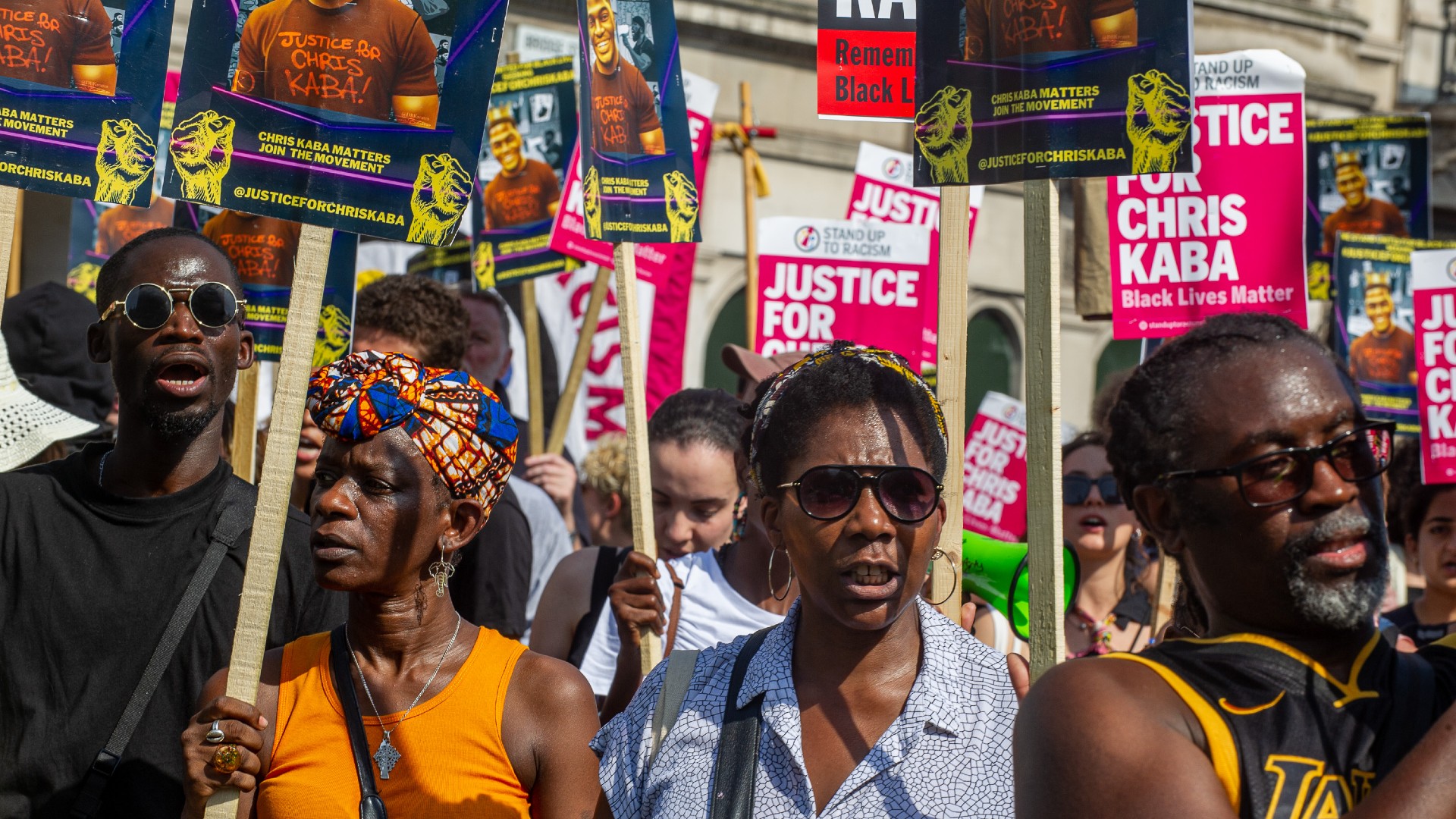Why police are downing firearms after the Chris Kaba murder charge
Army drafted in after scores of armed Met officers 'revolt' over charging of colleague

A free daily email with the biggest news stories of the day – and the best features from TheWeek.com
You are now subscribed
Your newsletter sign-up was successful
The Army is preparing to offer counter-terrorism support in London after a growing number of police officers stood down from firearm duties following a murder charge against one of their colleagues.
An unnamed Metropolitan Police officer appeared in court on Thursday, charged with killing an unarmed Black man, 24-year-old Chris Kaba, in south London last September.
Although the majority of the Met's 2,500 armed officers have so far continued work as usual, The Telegraph reported that "more than 300 officers" have said they will not carry a gun.
The Week
Escape your echo chamber. Get the facts behind the news, plus analysis from multiple perspectives.

Sign up for The Week's Free Newsletters
From our morning news briefing to a weekly Good News Newsletter, get the best of The Week delivered directly to your inbox.
From our morning news briefing to a weekly Good News Newsletter, get the best of The Week delivered directly to your inbox.
The Ministry of Defence (MoD) said it had received a request from the Home Office to "provide routine counter-terrorism contingency support to the Metropolitan Police, should it be needed" – this is known as military aid to the civil authorities (MACA). This could include the deployment of SAS special forces in very specific circumstances.
It comes amid a crackdown on rogue Met officers, with Scotland Yard admitting last week that the number of officers currently suspended or on restricted duties was more than 1,000 – equivalent to “the size of a small police force”.
What is behind the officer 'revolt'?
Chris Kaba was driving in south London on 5 September last year when the car, later found to be registered to a different name, according to the Independent Office for Police Conduct (IOPC), was picked up by an automatic number plate recognition camera for having been linked to a recent firearms incident. Police officers pursued the vehicle, before a specialist firearms officer fired a single shot through the driver's side of the windscreen. Kaba died later that night in hospital.
The fatal shooting "sparked mass protests from the black community, including from British rapper Stormzy", said the Daily Mail, and led to the IOPC launching a murder investigation.
A free daily email with the biggest news stories of the day – and the best features from TheWeek.com
Last week, the Crown Prosecution Service (CPS) issued a murder charge against a police officer identified only as Officer NX121. In response, more than 100 officers turned in the permits that allow them to carry weapons, a move described by Sky News as a "revolt".
Home Secretary Suella Braverman was quick to defend officers who make "split-second decisions under extraordinary pressures". She posted on Twitter, now known as X, that "they mustn't fear ending up in the dock for carrying out their duties".
But The Guardian said the "scale and speed" of the "protest" by Met armed officers prompted her to order an emergency review of armed policing, with several sources telling the paper of "fears the rebellion could spread further within the Met and around the country".
One area of the force that has been "significantly hit" is the armed response vehicle units, which each include three firearms officers and patrol the capital 24 hours a day in case of a major incident, said The Telegraph. Sources told the paper the unit had been "severely depleted".
What has the reaction been?
Braverman's intervention was backed by Rishi Sunak, who argued that armed police needed greater clarity about their legal powers.
The Met Commissioner Sir Mark Rowley said it was an area "long overdue for reform". Firearms officers have become concerned about potentially lengthy legal proceedings simply for doing their job as they have been trained, he said.
The Met chief said that of the roughly 4,000 armed incidents a year, on average officers only open fire twice. He suggested legal changes over the way self-defence is interpreted in police misconduct cases, the introduction of a criminal standard of proof for unlawful killing in inquests and inquiries, and changes to the threshold at which the IOPC can launch an investigation.
The home secretary's comments have, however, also been met with "criticism from Labour MPs", reported The Independent, including Harriet Harman, former shadow attorney general Karl Turner and shadow business secretary John Denham, alongside human rights lawyers and a former chief prosecutor.
Nazir Afzal, chief crown prosecutor for northwest England from 2011 to 2015, accused Braverman of "intervening in an ongoing prosecution", claiming “there is no justification for doing so".
"Strict legal laws apply to publishing statements which could prejudice a jury at a trial and subsequently be held to be contempt of court," said The Independent.
What would special forces be doing?
An MACA is only offered to the police or the NHS in "emergency situations", said BBC News, such as when the military helped medical staff during the Covid pandemic, and covered for striking border staff and paramedics last year.
The Met stressed that the MACA request was a "contingency option" that would only be used "in specific circumstances and where an appropriate policing response was not available".
The police spokesperson also insisted military staff would not be used "in a routine policing capacity" – meaning there is little chance of seeing armed soldiers patrolling London.